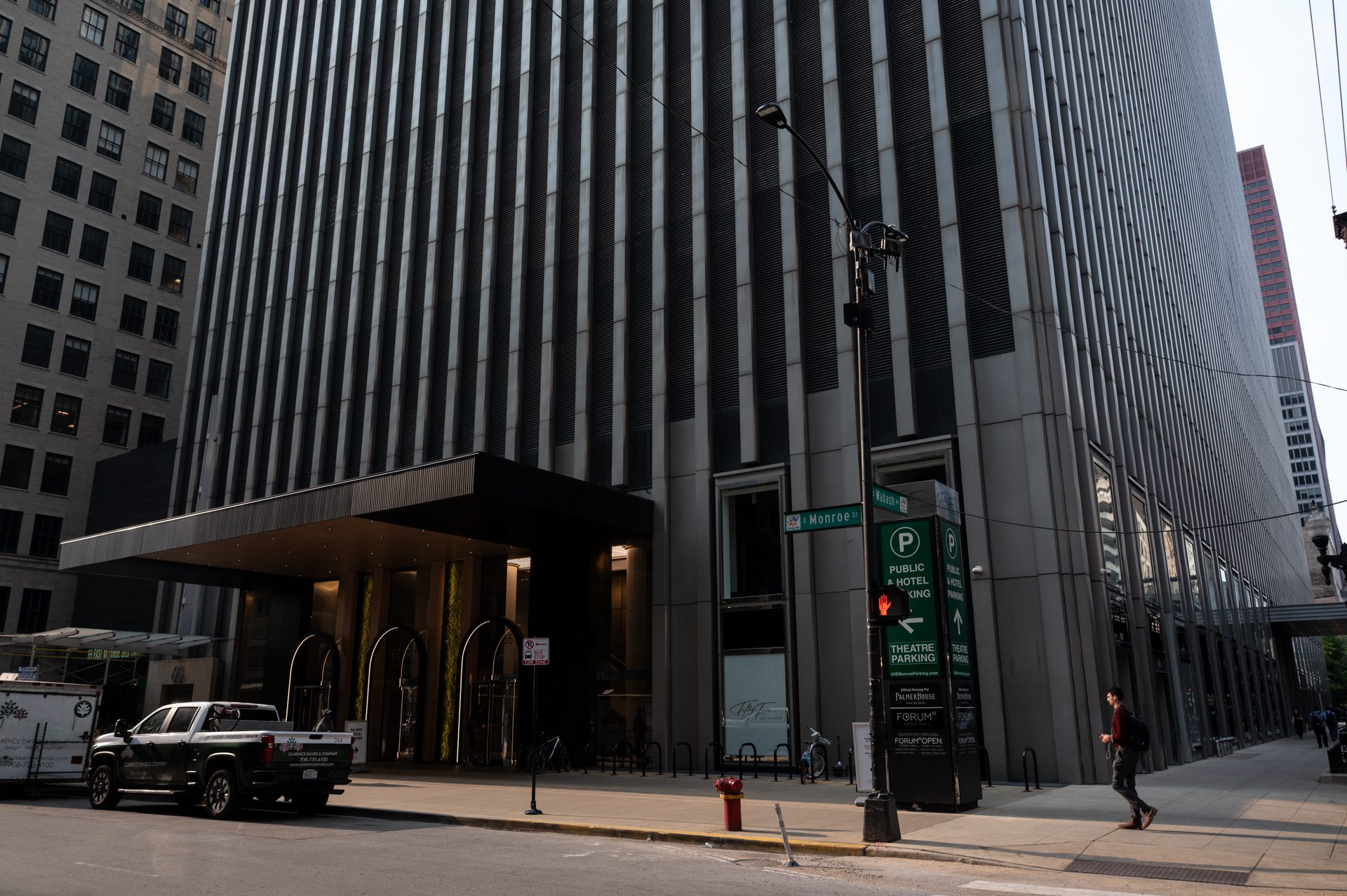 Max Herman/Borderless Magazine
Max Herman/Borderless MagazineFederal agents are detaining immigrants immediately after court hearings, raising concerns over due process.
During her first court hearing on Thursday, a Mexican woman stood alone before the immigration judge, struggling to explain in Spanish why she didn’t have an attorney.
Before she could finish, Judge Joshua Luskin announced his decision: “At the government’s request, your case was dismissed.”
She was free to go, but her freedom lasted less than a minute.
News that puts power under the spotlight and communities at the center.
Sign up for our free newsletter and get updates twice a week.
As she stepped into the hallway, three men in jeans, dark jackets and dark baseball caps surrounded her. They escorted her to another room, where another ICE agent told the woman she was being detained pending deportation. Her sister, who asked not to be named, stood in the hallway, shaken by her sibling’s quick disappearance.
This scene, witnessed by attorneys, immigration advocates and Borderless Magazine reporters, is part of an aggressive escalation of immigration enforcement to expand Trump’s sweep of undocumented immigrants. This tactic comes as arrest numbers failed to meet his campaign promise of mass deportations.
As immigration judges dismiss cases, ICE agents have begun arresting immigrants immediately after their court hearings in recent weeks. They have detained parents with infant children in courts in Phoenix and Baltimore, and in one unnamed court, they attempted to detain a mother with a nursing infant, according to the American Immigration Lawyers Association (AILA) press release. The tactic has been happening in at least 21 cities in courthouses nationwide.
Legal experts and immigrant advocates condemn ICE’s appearance in the nation’s courts and the government’s use of a procedure known as expedited removal.
“I’ve been practicing immigration law here in Chicago since 2007 and this is not something I have ever seen, nor could I have imagined this being our new reality,” said Kathleen Vannucci, a Chicago-based immigration attorney.
She noted that fear of arrest is causing immigrants to avoid court appearances, potentially exacerbating their legal troubles.
Inside Chicago’s immigration, ICE officials relied on agents dressed casually and posing as court watchers to tip off waiting agents the minute immigrants’ cases were dismissed. According to a New York Times report, citing a government memo, the government prosecutors were instructed to help ICE agents identify people likely to be deported.
In a large open area where immigrants await hearings or pass through on their way to the courts, ICE agents in Chicago last week huddled around video screens used by courtroom guards to monitor the proceedings. One of the few courtrooms still open that day was filled with immigrants, leaving no room for the agents who posed as observers.
ICE agents declined to comment on the arrest and referred Borderless reporters to a spokesperson in D.C. The spokesperson did not return a request for comment.
Read More of Our Coverage
ICE’s expedited removal policy allows individuals to be deported without a formal hearing if they cannot prove they have been in the U.S. for over two years. A federal court judge struck down a similar process during Trump’s first term in 2019. However, the government turned to the same effort this January and faces a legal challenge in the District Court in Washington, D.C. The tactic remains in effect pending a court decision.
Attorney Vannucci said some attorneys in Chicago have been able to hold off the process for 10 days to give them time to challenge the dismissals. But other attorneys said some judges have turned down similar pleas from lawyers.
Another problem with the seizures, said one Chicago-based attorney, is that detained individuals from Chicago are often transferred to facilities in Kentucky, making it difficult for attorneys to maintain contact with their clients.
The attorney, who didn’t want to be named in the story, fearing retribution from court officials, was exasperated by the court’s ICE tactic. He noted that ICE had done its homework, knowing whom to target.
The American Civil Liberties Union (ACLU) has condemned the courtroom seizure tactic, arguing that it undermines the judicial process and deters individuals from exercising their legal rights.
“This action often catches people unaware, without appropriate interpretation services and legal assistance, and makes a courtroom a needlessly hostile environment,” Ed Yohnka of the ACLU of Illinois commented. “This practice should be halted.”
His concern was echoed by Northwestern University Deportation Research Clinic Prof. Jacqueline Stevens.
“Turning a government proceeding into an unlawful sting operation will, of course, discourage noncitizens from attending hearings and thus make it impossible for the United States to benefit from the presence of those who deserve to remain here,” Stevens said.
“ICE claims to be concerned about people failing to show up for their immigration court hearings; their recent actions at the Chicago immigration courts and elsewhere will substantially exacerbate the problem.”
Steven Franklin is a contributing reporter at Borderless Magazine.
Fatema Hosseini is a Roy W. Howard Investigative Reporting fellow covering immigrant communities for Borderless Magazine. Send her an email at [email protected].


